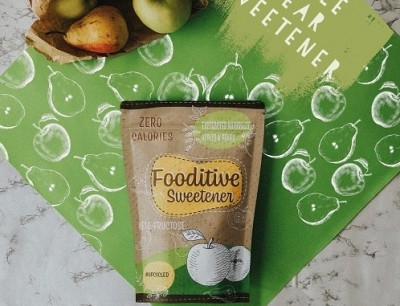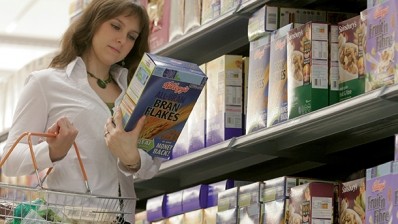National Food Strategy Part 2: sugar and salt tax plans

The report, which is written by Henry Dimbleby with input from an army of advisers, leads with the sugar and salt reformulation tax as its number one recommendation in a bid to combat obesity and health problems such as heart disease. Part 1 was published at the end of July 2020. Reactions so far range from 'refreshing' to 'taxes will not drive formulation'.
In total, the report makes 14 recommendations. They include proposing a £1bn investment in innovation, incorporating £125m spent on researching and developing alternative proteins, defining minimum standards for trade, and ways to protect them and mandatory reporting for large food companies.
"The Government should introduce a £3/kg tax on sugar and a £6/kg tax on salt sold for use in processed foods or in restaurants and catering businesses," Part 2 states.
"The tax would apply to all sugar and other ingredients used for sweetening (such as syrups and fruit extracts, but not raw fruit) at a rate of £3/kg. This is approximately the same rate as the current Soft Drinks Industry Levy (SDIL), which the sugar tax would replace."
"It would apply at a rate of £6/kg to all salt sold for use in food manufacturing. As salt is used in much smaller quantities than sugar, the rate needs to be higher in order to achieve an impact."
The 14 recommendations
1. Introduce a sugar and salt reformulation tax. Use some of the revenue to help get fresh fruit and vegetables to low income families.
2. Introduce mandatory reporting for large food companies on food waste and sales of: high fat, sugar or salt products excluding alcohol; protein by type and origin; fruit and veg; fibre, saturated fat, sugar and salt; total food and drink.
3. Launch a new ‘Eat and Learn’ initiative for schools.
4. Extend eligibility for free school meals.
5. Fund the Holiday Activities and Food programme for the next three years.
6. Expand the Healthy Start scheme.
7. Trial a ‘Community Eatwell’ programme, supporting those on low incomes to improve their diets.
8. Guarantee the agricultural payments budget until at least 2029 to improve sustainable land use by farmers.
9. Create a rural land use framework based on the Three Compartment Model.
10. Define minimum standards for trade, and a mechanism for protecting them.
11. Invest £1bn in innovation to create a better food system.
12. Create a National Food System Data programme.
13. Strengthen Government procurement to ensure taxpayer money is spent on healthy and sustainable food.
14. Set clear targets and bring in legislation for long-term change.
Dimbleby leaves room for exemption for smaller businesses, as does the SDIL, which only applies to companies producing more than one million litres of soft drinks annually.
The paper suggests exempting ingredients for home cooking could be managed either by taxing sales to manufacturers and foodservice businesses, or by taxing sales of sugar and salt when they leave the factory gate. Supermarkets could then claim a rebate for sales to consumers.
Dimbleby discourages food manufacturers from relocating overseas to avoid the taxes by proposing that imports of processed food should also be taxed according to sugar and salt content when they enter the UK.
Importers required to register
"Importers should be required to register for the tax, report the amount of added sugar or salt contained in their product, and pay the tax on that sugar or salt at the same rate as charged domestically," it states.
The taxes should be introduced through primary legislation in the 2024 Finance Bill, the document proposes, suggesting a three year period before implementation to facilitate adaptation. Shopper surveys conducted by a variety of polling firms had indicated sustained support for such taxes.
Voluntary measures aimed at industry and those aimed at individuals had proved ineffective at encouraging healthier diets, the report claims.
'Economies of scale'
The SDIL is a model for how taxes would work, Dimbleby states. "Businesses would incur costs in administering the tax and reformulating their products," he admits. However, "Some larger manufacturers may achieve economies of scale."
He recognised some products were harder to reformulate than others, especially in cases where salt was used as a preservative. "Nonetheless, there is considerable room for improvement in this area." Alternatives such as potassium chloride as a salt replacer did exist.
Consumers could end up paying more for taxed foods, but if the taxes had the desired effect, they would stop buying more expensive high salt and sugar foods. As a result, they would not be left too much out of pocket.
Low income households
The document recognises poorer people might still end up buying unhealthy food because per calorie healthy food was more expensive. As a result, it makes further proposals to support low income households financially, helping them to prioritise healthier foods.
"The main financial impact on the Government will be positive," states the paper. "Excluding the enormous long-term gains from improving public health, we estimate the tax could generate between £2.9bn–£3.4bn per year for the Treasury. This includes £2.3bn–£2.8bn from the sugar tax and £570m–£630m from the salt tax."
Examples of predicted price rises for non-reformulated, reformulated and other products
Product | Sugar content per pack/serving (g) | Salt content per pack (g) | Price rise from sugar per pack | Price rise from salt per pack | Current cost of a pack | Cost of a pack after tax | Current price per 100g | Price per 100g after tax | % increase |
Cadbury Dairy Milk | 25 | 0.11 | 7.5p | £0 | £0.60 | £0.68 | £1.34 | £1.51 | 13% |
Cadbury Dairy Milk 30% less sugar 35g | 13 | 0.06 | 4p | £0 | £0.60 | £0.64 | £1.72 | £1.83 | 6% |
Salt and Vinegar Pringles 200g | 3.6 | 4.6 | £0 (not free sugars) | 3p | £2.50 | £2.53 | £1.25 | £1.26 | 1% |
Tesco Salt and Vinegar Crisps 6x 25g | 0.2 | 0.4 | £0 (not free sugars) | 1p | £0.77 | £0.78 | £0.51 | £0.52 | 2% |
Apple | 10 | 0 | £0 (not free sugars | £0 | £0.54 | £0.54 | £0.27 | £0.27 | 0% |
The fiscal measures could lead to a reduction in sugar consumption of between 4–10g per person per day and in salt consumption of 0.2–0.6g per person per day, the report estimates.
It argues the tax would reduce the average calories eaten per person per day by 15-38kcal, completely halting weight gain at a population level (which would require an average reduction of 24kcal per person per day).
Based on Department of Health and Social Care modelling, the UK’s economic output could be between £2.2bn and £5.7bn greater, thanks to a more numerous and healthier workforce, Dimbleby claims. The NHS could save £1.6bn–£4.1bn over 25 years by not having to tackle so many obesity and diet-related diseases and the social care system would save £1.9bn–£4.8bn.
The Food & Drink Federation’s chief scientific officer Kate Halliwell said: “This report will help inform the wider conversation around the future of the UK’s food and drink industry. Food and drink manufacturers welcome the intent to bring forward measures which will help to increase access and affordability of food and drink for children and families on lower incomes."
However, she added: “In contrast to this, a salt and sugar tax will ultimately impact those families who are already struggling to make ends meet, by making food and drink more expensive. After many years of cost pressures, businesses in our sector are already operating on very tight margins, and any further costs would simply have to be passed on to the consumer in the form of higher food prices.
'Will not drive reformulation'
“These taxes will not drive reformulation. Food and drink manufacturers have been voluntarily lowering fat, salt and sugars in recipes for decades as well as reducing portion size, but it takes time to change much-loved products. Furthermore, the Government’s proposed advertising ban and promotions restrictions would limit the ways in which companies can let families know about exciting new options.
“It is hard to view the proposals that the taxes raised will pay for additional health plans, with anything but scepticism. The same promise was made ahead of the introduction of the soft drinks industry levy, but was quietly dropped shortly afterwards."
'Meaningful funds for innovation'
Referring to plans to invest in alternative proteins, Dr Russ Tucker, co-founder and chief technology officer, Ivy Farm, said: “Our national diet has to change but rather than cutting back on meat there is another way – backing cultured or ‘lab-grown’ meat. We warmly welcome Henry Dimbleby’s call for the Government to provide meaningful funds for innovation and we would urge ministers to take the potential of cultured meat seriously. It’s real meat, but with a far lower carbon footprint.
“As Henry Dimbleby notes, the UK could miss out on thousands of jobs without the right support for innovation in food. Other nations such as Singapore, Israel and the US are moving ahead fast. At Ivy Farm we are working towards producing cultured meat at scale and hope to put it on consumers plates in the next 18 months. We strongly believe it will be the ‘tastiest alternative’.”
Commenting on part 2 of the National Food Strategy, Dimbleby said: “The food system is a logistical miracle, full of amazing, inventive people. With the right leadership from Government, it is well within our power to change the system so it makes both us and the planet healthier.
"Currently, however, the way we produce food is doing terrible damage to the environment and to our bodies, and putting an intolerable strain on the NHS.
COVID-19 a 'painful reality check'
"COVID-19 has been a painful reality check. Our high obesity rate has been a major factor in the UK’s tragically high death rate. We must now seize the moment to build a better food system for our children and grandchildren.”
Environment secretary George Eustice said: “I would like to thank Henry Dimbleby and his team for their work on this independent review, showing the vital role our food system plays in all our lives. This Government will carefully consider its conclusions and respond with a White Paper within six months, setting out our priorities for the food system.”
The National Food Strategy, led by British entrepreneur Dimbleby is the first independent review of the UK’s food policy in nearly 75 years. The strategy, which was commissioned by the Government in 2019, aims to ensure a food system that is healthy, affordable, sustainable, resilient and productive.
The Government is expected to publish a White Paper responding to the proposals in six months' time.
















